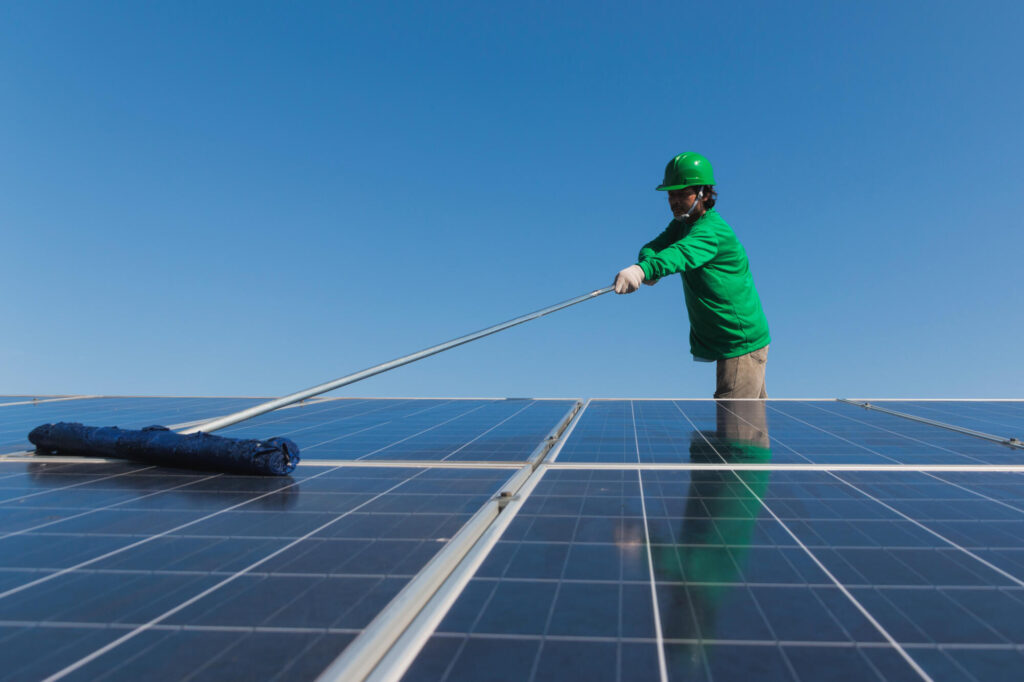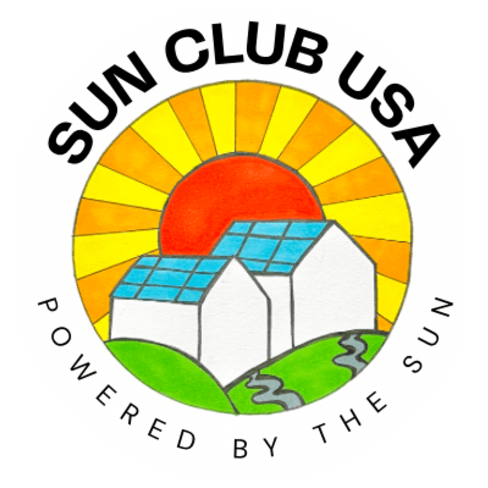
During the last decade, solar energy has grown by more than 22 percent. There are now more than 179 gigawatts of solar capacity installed in the United States.
Solar panels need access to the sun’s rays to convert them into energy. As panels accumulate dirt, dust, and debris, this reduces their effectiveness. To avoid this, it is vital to clean them properly.
This article provides information on how to do that. Keep reading to find out the right method and best solar panel cleaning solution for your home or business.
Why Clean Solar Panels
Solar panels get rained on. Most people assume that this is enough to clean them. While rainwater has the potential to wash away a lot of debris, layers of dirt, dust, pollen, and other materials can still accumulate over time.
Like other external surfaces, solar panels are susceptible to pollution. Smog and other contaminants can contribute to buildup on their surfaces. Cleaning is the best way to remove unwanted materials.
Another reason to clean your solar panels on a regular basis is that it prolongs their life. It helps stave off the possibility of corrosion, ensuring the panels last and perform well as long as possible.
Clean panels also make it easier to detect issues that may need addressing, such as damage to surfaces. This has the related benefit of being able to identify problems that may be covered by a warranty that came with installing solar panels in your home. It lets you get them fixed without added costs.
A final reason to clean your solar panels is aesthetic appeal. Much like windows or siding, grimy solar panels can be an eye sore. Keeping them clean can increase the curb appeal and general attractiveness of your home.
How Often to Clean Solar Panels
How frequently you clean your solar panels depends on where you live. If you reside in an area with high pollution, you could see a fast accumulation of particulate matter.
Rural locations might have more dust than urban ones. If you live in an area with a lot of birds, then you will want to clean the droppings off the panels as soon as possible.
Certain areas have more pollen during the spring. Also, drier climates will experience less rain, which can wash dust, dirt, and pollen away. More humid conditions can lead to mold or mildew on the panels.
Another way to determine if solar panels need cleaning is through your monitoring system. Several things that can impact productivity besides obstructions, but if you notice a drop, dirty panels could be the culprit.
How to Clean Solar Panels
There are several basic steps to cleaning your solar panels. Before taking any of these, check with any manufacturer’s guidelines. They may have additional tips or unique advice for cleaning your particular panels.
Preparation
First, turn off your solar panel system. This limits the potential for live electrical components to come into contact with moisture.
Next, gather supplies. For a water source, a garden hose and nozzle will be sufficient in most cases. Avoid using powerful pressure washers on your panels, as they could damage the photovoltaic cells.
In most cases, you do not need a special solar panel cleaning solution for washing panels. There are also some products you may want to avoid.
For instance, household soap has the potential to leave residue on the surface. This makes dust and pollen more likely to stick to the panels even after cleaning. It also makes them more reflexive, which means a diminished capacity for absorbing sunlight.
There are situations where more than water is needed to clean the panels. If this is the case, go with vinegar or exterior glass cleaners. Also, avoid using harsh chemicals, such as bleach, which could damage your panels.
Clean the Panels
Choose a cool, overcast, day to perform the cleaning. Early morning or late evening is preferable. Besides greater comfort, the lack of sun glare off the panels can make the project easier.
As a safety precaution, avoid getting on your roof to clean the panels. If possible, work from the ladder, and always wear sturdy, non-slip shoes. If you must get on your roof, you might consider using a harness to avoid falling
Wet the panels, then (if using) apply the detergent. Use a brush, sponge, or soft brush to gently clean the panels, wiping away the grime.
Long-handled brushes like the ones designed for cleaning vehicles are a good option. They also will not scratch your panels.
Target areas with buildup or stains. Repeatedly rinse the panels with clean water. If possible, use filtered or deionized water for this–it will help reduce residue left by tap water.
Finally, let the panels dry completely before turning the system back on. While water on the panels themselves is not an issue, it is important to give ample time for water that may have gotten sprayed onto electrical connections under the panels to completely dry.
Consider Professional Solar Cleaning
If you are uncomfortable working at elevated heights or for greater convenience, consider hiring professionals to clean your solar panels. They will have the knowledge and experience to accomplish this in a safe, efficient manner.
They also will have access to professional-grade cleaners that are safe and effective. This will ensure that your panels get as clean as possible so that they can perform at peak capacity.
Also, if you are considering a new installation, check to see if the installer provides cleaning services. Many solar companies offer upkeep packages or cleaning during regular checkups.
Find a Solar Panel Cleaning Solution Near You
Now that you understand how to clean rooftop solar panels, you can keep yours performing at optimal capacity. A qualified solar installer can further advise you on the best methods and solar panel cleaning solutions for your particular panels.
Sun Club is more than a solar company. We are committed to environmental stewardship and saving customers money through sustainable, reliable green energy. Reach out to us today for solar panel installation or to learn more about solar home solutions.

